By Melissa Souza
I have a degree in Early Childhood Education and taught in the public school system for three years. As soon as my husband and I had our first child, we knew that public school was not for us. We wanted to have control over what our children were taught, and when they were taught it. My husband and I felt it was our responsibility to raise hard-working, self-driven, self-disciplined, and imaginative human beings.
Getting over obstacles
The number one thing that others say when I bring up homeschooling is, “We can’t survive on one income.” My husband makes a decent living with his job, but it does take dedication and discipline to live on one income in today’s day and age. We don’t have smart phones, we don’t go to movies, we don’t go out to eat more than once a month, we don’t have cable television, and we don’t buy a lot of “stuff.” We buy used when we can, and we sell anything we no longer need or want. I coupon for everything, and have gotten our weekly grocery bill down by 50%. We drive older cars with no payments, and we pay off our credit cards every two weeks. If we don’t have cash for it, then we don’t buy it. It is possible to live on one income, but you have to curb your spending to make it work. Staying at home has also saved us so much in childcare costs. I have friends who are devoting a large portion of their income towards having someone else raise and look after their children. Why not keep them home instead of working to pay for childcare?
Another thing I often hear is “I could never spend that much time at home with my kids.” If this is truly how you feel about your own children, then why have them? The most important job you currently have in life is raising them. Being a stay-at-home parent is difficult, thankless, and constant. But with that comes a closeness and your home becomes an endless place of togetherness and learning.
Something else I often hear is, “Don‘t you want to socialize your children?” Homeschooled children are not weird simply because they are homeschooled. They often become similar to their parents. If the parents are strange or introverted, then their children may become that way also. I have met many homeschooled families that are very outgoing and adventurous, and so are their children. Children who are homeschooled tend to be musical, artistic, innovative, and inquisitive. If you take the time to speak with them, you will discover maturity and confidence. Homeschooled children spend a lot of time with adults, and their ability to relate to and socialize with them is expediential. I see this as an important skill; they will spend 80% of their life as an adult, so they may as well learn how to communicate as one.
All that being said, socializing children with their peers is important, and there are many ways to do this as a homeschool family. There are play dates, homeschool co-ops, youth groups, 4-H, scouts, and at the top of our list, sports. Our children play soccer three days a week, and this is their main social outlet. They get exercise, peer socialization, competition, and entertainment through sports. If you choose to homeschool, I recommend finding at least one way for your children to make friends their own age. Co-ops are also a wonderful way to expand upon your child’s education and socialization. Many towns have a local homeschool co-op that offers a variety of classes that your child can take for little or no money.
How to get started with homeschool?
One fear that many have with homeschool is failure. They are so afraid that they will forget to teach something, or that the work will become too difficult to teach in higher grade levels. Even as an educator I had these same fears. Stop to consider that no one cares for your child like you do. If your child starts to struggle in a subject, you will see the areas that need more work and you can focus on them. Do not worry about forgetting something; there are lists online for each state that clearly label the benchmarks for each grade. Print it out, and make sure to cover them throughout the year. I have found the benchmarks rather simple, and we are able to not only cover them, but master them. Each state will have them online, and can be found by searching your state’s name and “educational benchmarks by grade.”
The homeschool day goes quickly, because there is so much one-on-one time and independent learning. We will often finish the day’s lessons early, and then have time left to work on areas of weakness. This also allows us to add in a project that they are interested in, experiment with science, go on a field trip, or just read a great book together.
The simplest way to begin homeschooling if you are feeling overwhelmed is to pick a curriculum. There are many homeschool curriculums that you can choose from online or you can attend a homeschool conference where you can physically inspect each one in person. My recommendation would be to just pick one. If it looks good or was recommended by a homeschool family that you trust, try it. You can always supplement with more content if you feel it necessary. I started with an easy-to-follow curriculum that came neatly organized in five subject workbooks. I found it to be fairly basic so I added some extra reading, story writing, and an extra math warm-up sheet. I usually pick up a grade level workbook for $8-$10 at the beginning of the year, and will take from that to add to an area that I think my child needs some extra practice in.
At the end of each homeschool year you can evaluate the curriculum you used. Many people end up using math from one program, science from another, and language arts or history from another. This is something that comes with a few years of experience. Do not feel like you need to piece together the perfect curriculum your first year. Over the years, I have dropped a few things, and pieced together my own subjects and units of study as I have gained confidence. My oldest has been a learning experience for me. By the time I am teaching my fourth child, I just may have this homeschool thing down. Other homeschooling parents can be a wealth of knowledge, but no one knows your child better than you.
Once you decide to homeschool
Once you make the decision to homeschool, there are some state laws that you will want to familiarize yourself with. In some states you are required to declare your children as homeschooled by a certain age. This is done online or by physically walking into the school district office. Make sure you research if your state requires this form, and get it turned in on time each year. This information can be found by searching your state’s name and “homeschool requirements.” You can also call or walk into your local school district office to get all the homeschool information as it pertains to your state.
The best way to get started is to just dive in. Choose a curriculum, get cleared to teach, declare your child, and have fun! Do not put so much stress on yourself, and trust your parental instincts. There are many people out there that will support you, and you will learn, grow, and improve as you go. If a subject becomes too challenging, seek out a co-op. If you become overwhelmed, seek out another homeschooling family for help. If you get bored with the curriculum, change it or add to it. If you feel like you have cabin fever, take a field trip. Homeschool is about freedom and unconventional learning. The best part is you and your children will become active daily learners, and will begin to discover learning in places that you may have never noticed before.
Our favorite adventures in homeschooling
Gardening and growing our own food has become a wonderful way to keep science alive and well throughout the summer months. Each spring, we decide what to plant and sow our seeds together as a family. We will talk and read about the parts of a plant and how the soil, sun, and rain are utilized. We talk about seedlings, leaves, roots, and photosynthesis. Once our plants are growing, we learn about nutrition, harvesting, local farms, and where our food comes from. We actively compost garden scraps, talk about how live materials break down, and watch how the cycle of life forms.
The kids enjoy cooking and using weight, measurements, and temperature to prepare and preserve the foods that they have grown. We incorporate history by learning about how people in the past preserved foods, and we spend many hours dehydrating, freezing, sun drying, and canning all the different foods grown on our property. These kinds of lessons are invaluable to children of all ages.
Another fun area of study was dairy. We learned about different kinds of cows, dairy farms, and how milk is pasteurized before being sold in stores. We then went to a local farm where we now regularly purchase raw milk, and began experimenting with all the ways to use raw organic milk. This has also been a wonderful science, math, and social studies lesson as well. We now make organic butter from the cream, and are learning to make different kinds of cheeses from cultures. We have made sour cream, whipped cream, cream cheese, and have begun baking all of our own bread using the leftover whey. The kids love to watch how the curds separate from the whey, and learn about how protein-rich and wonderful that strange, sweet-smelling yellow liquid can be. We talk abut using everything, and keeping what we consume preservative- and chemical-free.
We love the daily opportunities that homeschooling provides. Something as simple as a short shopping trip can become a wonderful math and nutrition lesson. A road trip becomes a history and geography lesson that they can touch and feel. Even baking cookies becomes a hands-on math lesson with a sweet reward. We homeschool because we know that no one cares more about our children’s education than we do, and no one can commit themselves to our children’s well-being more than we will.

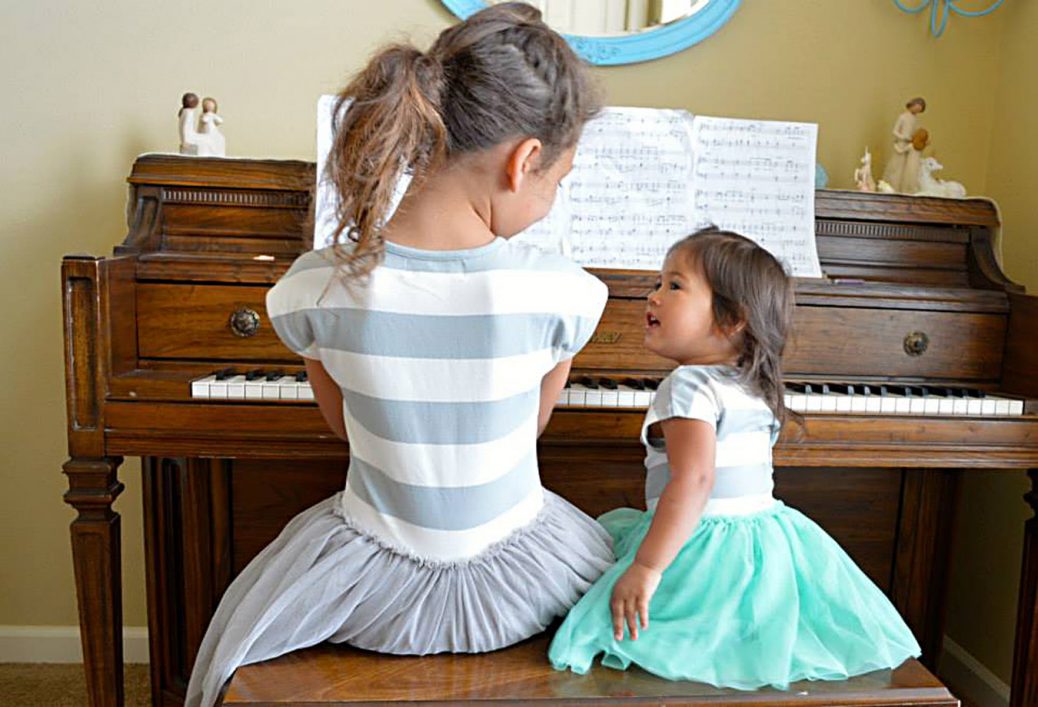
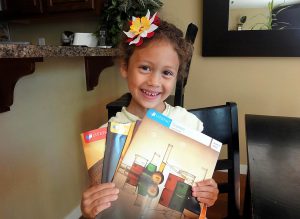
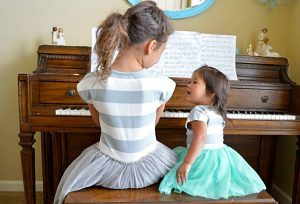
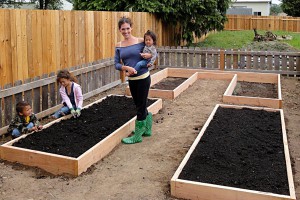
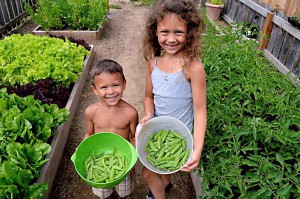
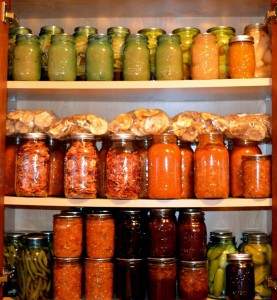

I LOVED reading your article! I am a retired teacher of 24 years & I support any parent’s idea to home school. Some of the brightest children I’ve ever known were home schooled. So pat yourself on the back & keep teaching those kids??